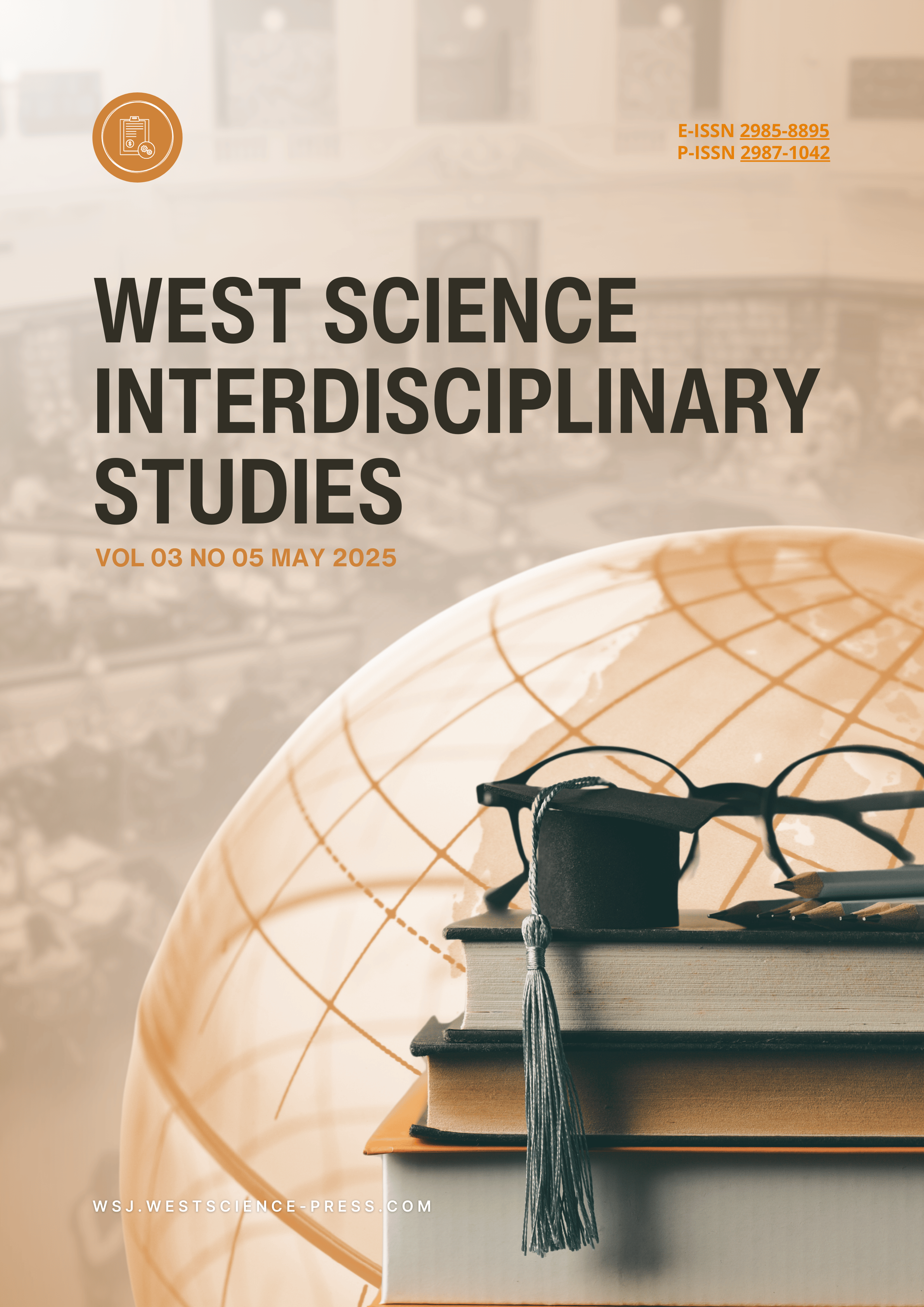Bibliometric Analysis of Procurement Ethics and Supplier Management
DOI:
https://doi.org/10.58812/wsis.v3i05.1919Keywords:
Procurement Ethics, Development Strategy, Bibliometric Analysis, Sustainable, Supply ChainsAbstract
This study conducts a bibliometric analysis to map the intellectual structure, thematic trends, and collaborative patterns within the field of procurement ethics and supplier management. Using data from the Scopus database and visualized through VOSviewer, the analysis covers co-authorship networks, keyword co-occurrence, citation structures, and country-level collaboration. Results show that "supplier management" remains the dominant theme, closely linked to operational concerns such as supplier selection, quality control, and risk management. More recent trends reveal a growing integration of sustainability, artificial intelligence, and information technology into procurement practices. Co-authorship and country collaboration networks highlight influential researchers and global research hubs, particularly in Germany and the United States. Despite progress, ethical constructs are often framed through strategic or technological lenses rather than normative perspectives. The study provides a roadmap for future research, emphasizing the need for broader ethical engagement and greater inclusivity of emerging economies in global procurement discourse.
References
[1] M. Pagell, Z. Wu, and M. E. Wasserman, “Thinking differently about purchasing portfolios: an assessment of sustainable sourcing,” J. supply Chain Manag., vol. 46, no. 1, pp. 57–73, 2010.
[2] T. Mukhopadhyay and S. Kekre, “Strategic and operational benefits of electronic integration in B2B procurement processes,” Manage. Sci., vol. 48, no. 10, pp. 1301–1313, 2002.
[3] D. Hollos, C. Blome, and K. Foerstl, “Does sustainable supplier co-operation affect performance? Examining implications for the triple bottom line,” Int. J. Prod. Res., vol. 50, no. 11, pp. 2968–2986, 2012.
[4] A. Bozorgi-Amiri, M. S. Jabalameli, and S. M. J. Mirzapour Al-e-Hashem, “A multi-objective robust stochastic programming model for disaster relief logistics under uncertainty,” OR Spectr., vol. 35, pp. 905–933, 2013.
[5] A. Akintoye, G. McIntosh, and E. Fitzgerald, “A survey of supply chain collaboration and management in the UK construction industry,” Eur. J. Purch. supply Manag., vol. 6, no. 3–4, pp. 159–168, 2000.
[6] J. M. Swaminathan and S. R. Tayur, “Models for supply chains in e-business,” Manage. Sci., vol. 49, no. 10, pp. 1387–1406, 2003.
[7] M. Dada, N. C. Petruzzi, and L. B. Schwarz, “A newsvendor’s procurement problem when suppliers are unreliable,” Manuf. Serv. Oper. Manag., vol. 9, no. 1, pp. 9–32, 2007.
[8] N. Donthu, S. Kumar, D. Mukherjee, N. Pandey, and W. M. Lim, “How to conduct a bibliometric analysis: An overview and guidelines,” J. Bus. Res., vol. 133, pp. 285–296, 2021.
[9] S. A. Torabi and E. Hassini, “An interactive possibilistic programming approach for multiple objective supply chain master planning,” Fuzzy sets Syst., vol. 159, no. 2, pp. 193–214, 2008.
[10] N. Banaeian, H. Mobli, B. Fahimnia, I. E. Nielsen, and M. Omid, “Green supplier selection using fuzzy group decision making methods: A case study from the agri-food industry,” Comput. Oper. Res., vol. 89, pp. 337–347, 2018.
[11] H. Walker and S. Brammer, “Sustainable procurement in the United Kingdom public sector,” Supply Chain Manag. An Int. J., vol. 14, no. 2, pp. 128–137, 2009.
Downloads
Published
Issue
Section
License
Copyright (c) 2025 Loso Judijanto, Said Hamzali, Eva Yuniarti Utami

This work is licensed under a Creative Commons Attribution-ShareAlike 4.0 International License.
























 Instagram
Instagram 